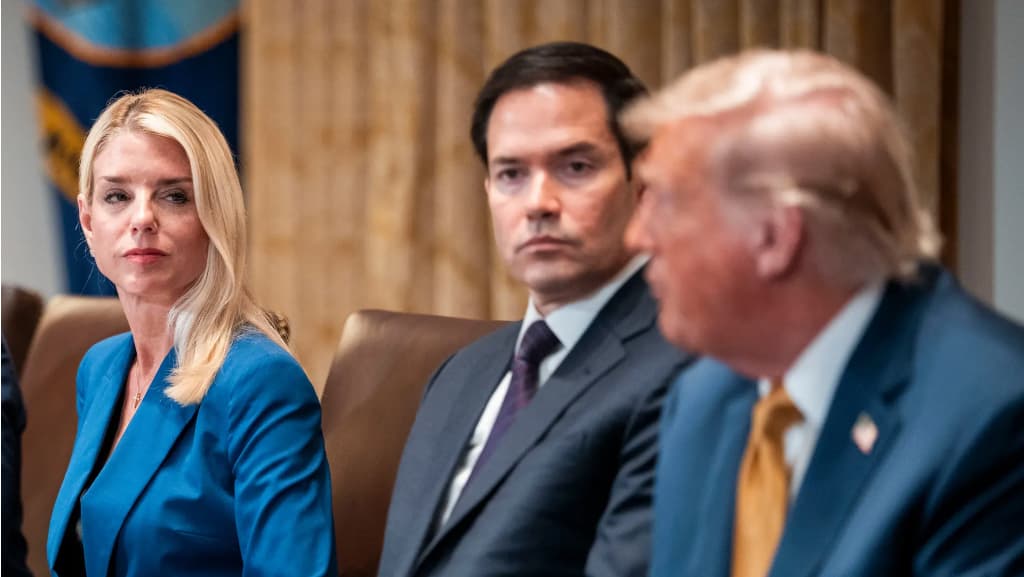
US House Panel Subpoenas Clintons in Broadened Epstein Probe Amid Accusations of Trump Administration Cover-up
A bipartisan committee is escalating its probe into the Epstein scandal, demanding files from Justice Department and testimony from high-profile figures.
In a dramatic escalation of the legal and political saga surrounding the Jeffrey Epstein files, the US House Oversight Committee has issued a sweeping set of subpoenas, demanding documents from the Justice Department and testimony from high-profile figures, including former President Bill Clinton and former Secretary of State Hillary Clinton.
The move, announced Tuesday by committee chairman James Comer, comes as pressure mounts on the administration of President Donald Trump for what critics see as a lack of transparency and a mixed messaging campaign on the issue.
The subpoenas are part of a bipartisan push to force the full, unredacted release of records related to Epstein’s sex-trafficking ring, which has become a flashpoint for both parties. The committee is also demanding interviews under oath from a range of former law enforcement officials, including several attorneys general and former FBI directors from the last four administrations. This latest development injects fresh urgency into the public's long-standing demand for answers about Epstein's network and why he was able to avoid justice for so long.
Background
The “Epstein files” is a term that has come to encompass a vast collection of legal documents, depositions, flight logs, and other materials related to the criminal cases against the late financier Jeffrey Epstein. For years, Epstein, with the help of his associate Ghislaine Maxwell, allegedly operated a sex-trafficking ring that preyed on underage girls.
The legal journey began in 2005 with a police investigation in Palm Beach, Florida, which led to a controversial 2008 plea deal that allowed Epstein to plead guilty to state charges and serve a minimal sentence. The case was reignited a decade later by an investigative series by the Miami Herald, resulting in Epstein's 2019 arrest on federal charges. He died by suicide in jail that year while awaiting trial. The ongoing legal battles and a public hunger for transparency have kept the "Epstein files" in the news, particularly concerning the identities of his powerful associates.
Political Fallout
The latest congressional action highlights the intense political fallout from the Epstein files. For months, the Trump administration has faced a significant backlash -- even from its own conservative base -- over its handling of the documents. While President Trump vowed during his 2024 campaign to "release everything," the Justice Department recently released a memo stating that there was no "client list" and that no further charges against third parties would be pursued. This about-face has led to accusations of a cover-up and has fueled bipartisan frustration.
The subpoenas targeting the Clintons, while part of a broader inquiry, have drawn particular attention due to Bill Clinton's past associations with Epstein, including traveling on his private jet. The former president has consistently denied any knowledge of Epstein’s crimes. The move to subpoena both Democrats and Republicans underscores how the Epstein case has transcended traditional party lines, with a shared desire among lawmakers to uncover the full scope of the scandal.
Trump's Connection
President Trump's past relationship with Jeffrey Epstein has been a central element of the controversy. The two were known to socialize in the 1990s and early 2000s, and Trump even described Epstein as a “terrific guy” in a 2002 magazine interview. The relationship reportedly soured after a real estate dispute. Since Epstein's 2019 arrest, Trump has repeatedly sought to distance himself, claiming he had not spoken to Epstein in years.
However, the administration’s handling of the files has only intensified scrutiny. Reports, including one from The Wall Street Journal alleging Trump contributed a "bawdy" letter to a birthday book for Epstein, have been met with denials from the president, who has since filed a lawsuit against the newspaper.
The Justice Department’s recent decision to not release further files and the movement of Ghislaine Maxwell to a low-security prison after a meeting with a top DOJ official have further fuelled speculation, leading to public demands for total transparency.
Controversies
The Epstein files are mired in several key controversies that continue to drive public interest:
-
The "Client List" and Lack of Transparency: Despite the Justice Department's denial, a persistent belief in a "client list" of powerful individuals who allegedly participated in Epstein's crimes has created a public trust deficit.
-
Victim Concerns: The legal and political battles are taking a toll on the victims of Epstein's abuse, some of whom support the release of documents for transparency, while others fear re-traumatisation and the compromise of their privacy.
-
Epstein's Death: The official ruling of suicide in Epstein's 2019 death in a federal jail has been a source of enduring controversy, with widespread conspiracy theories suggesting he was murdered to prevent him from implicating powerful individuals.
The new subpoenas from the House Oversight Committee signal that the legal and political fight over the Epstein files is far from over, and the public's thirst for answers about the powerful people who may have enabled his crimes will continue to be a driving force in this complex story.
For any enquiries please fill out this form, or contact info@thelawreporters.com Follow The Law Reporters on WhatsApp Channels